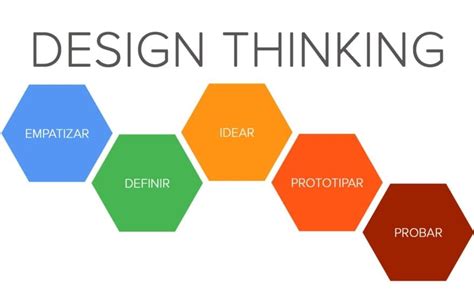Introduction to Design Thinking Workshops
Design thinking workshops have gained immense popularity in recent years as companies across various industries strive to foster innovation and problem-solving within their organizations. These interactive sessions provide a unique approach to creative problem-solving, encouraging participants to think outside the box and develop user-centric solutions.
Design thinking workshops are collaborative and hands-on, bringing together individuals from diverse backgrounds and expertise to brainstorm ideas and explore potential solutions to complex challenges. By incorporating design principles into the problem-solving process, these workshops aim to understand user needs, challenge assumptions, and redefine problems in an innovative way.
One of the key benefits of attending design thinking workshops is the emphasis on empathy and understanding the end-user. By focusing on the needs and experiences of the users, participants can develop solutions that are truly user-centric and address the core issues at hand. These workshops also encourage participants to embrace experimentation and failure as integral parts of the design process, fostering a culture of continuous learning and improvement.
Benefits of Attending Design Thinking Workshops
Design thinking workshops offer numerous benefits for individuals and organizations alike. These workshops are designed to foster creativity, innovation, and problem-solving skills among participants. By attending a design thinking workshop, individuals can enhance their ability to approach challenges in a systematic and user-centric way. Let’s explore some of the key benefits of participating in design thinking workshops.
1. Improved Problem-Solving Skills:
Design thinking workshops provide a structured framework for problem-solving. Participants learn to identify the root cause of a problem, empathize with users, and generate innovative solutions. This approach equips individuals with the skills to think critically and solve complex problems effectively.
2. Enhanced Creativity:
Design thinking encourages participants to think outside the box and explore new possibilities. Through various brainstorming techniques and ideation exercises, individuals can tap into their creative potential and come up with innovative ideas. This creative mindset nurtured in workshops can be invaluable for individuals in any field.
3. User-Centric Approach:
A key principle of design thinking is to prioritize the needs and desires of the end-users. By attending a design thinking workshop, individuals gain a deeper understanding of user behaviors, preferences, and pain points. This user-centric approach helps in creating products and services that truly resonate with the target audience.
4. Collaboration and Teamwork:
Design thinking workshops often involve group activities and collaborative exercises. These activities foster teamwork and encourage participants to leverage the diverse skills and perspectives of their peers. By working together, participants learn the power of collaboration and how it can lead to more innovative solutions.
5. Adaptability and Iteration:
Design thinking emphasizes the importance of an iterative approach to problem-solving. In workshops, individuals learn to create prototypes, gather feedback, and iterate on their designs. This iterative mindset helps individuals to adapt to changing circumstances and continuously improve their solutions.
Attending a design thinking workshop can be a transformative experience, both personally and professionally. It equips individuals with valuable skills and mindset required to tackle complex challenges with creativity and innovation. Whether you are a designer, entrepreneur, or any professional seeking to enhance problem-solving abilities, design thinking workshops offer a unique and impactful learning opportunity.
Top Design Thinking Workshop Providers
When it comes to design thinking workshops, it is important to find the right provider to ensure that you get the most out of your experience. In this blog post, we will be discussing the top design thinking workshop providers in the industry.
1. IDEO U
IDEO U is a leading provider of design thinking workshops. With their extensive experience and expertise in the field, they offer a wide range of workshops tailored to meet the specific needs of individuals and organizations. Their workshops are known for their interactive and hands-on approach, allowing participants to fully immerse themselves in the design thinking process.
2. D.School at Stanford University
The D.School at Stanford University is another top provider of design thinking workshops. As one of the pioneers in the field, they offer workshops that are rooted in their innovative and interdisciplinary approach to design thinking. Their workshops are highly regarded for their emphasis on collaboration and experimentation, and they attract participants from all over the world.
3. IDEO.org
IDEO.org is a nonprofit organization that offers design thinking workshops with a focus on social impact. Their workshops are designed to help individuals and organizations tackle complex social challenges through human-centered design. With their strong emphasis on empathy and creative problem-solving, IDEO.org’s workshops have made a significant impact in various communities around the world.
| Workshop Provider | Key Features | Target Audience |
|---|---|---|
| IDEO U | Interactive and hands-on approach | Individuals and organizations |
| D.School at Stanford University | Emphasis on collaboration and experimentation | Students, professionals, and organizations |
| IDEO.org | Focus on social impact and human-centered design | Nonprofits and organizations working on social challenges |
These are just a few examples of the top design thinking workshop providers. Each provider has its own unique approach and areas of expertise, so it is important to carefully consider your specific needs and goals when choosing a workshop. Whether you are an individual looking to enhance your problem-solving skills or an organization aiming to foster a culture of innovation, attending a design thinking workshop can be a game-changer.
Programs Offered by Design Thinking Workshop Providers
Design thinking workshops are becoming increasingly popular as organizations seek innovative solutions to their business challenges. These workshops are designed to foster creativity, collaboration, and problem-solving skills among participants. They offer a structured approach to problem-solving that encourages out-of-the-box thinking and empowers individuals to come up with innovative ideas. One of the key factors contributing to the success of these workshops is the range of programs offered by design thinking workshop providers. These programs are designed to cater to the unique needs and goals of different organizations.
Design thinking workshop providers offer a variety of programs that are tailored to the specific needs of organizations. These programs typically include a combination of classroom sessions, hands-on activities, and real-world case studies. Participants learn about the principles and techniques of design thinking and how to apply them in their own work. They also have the opportunity to work on real-world projects, applying their newly acquired skills to solve complex business problems.
Some of the popular programs offered by design thinking workshop providers include:
- Introduction to Design Thinking: This program provides an overview of the design thinking process and its application in various industries. Participants learn about the key principles of design thinking and how to incorporate them into their own work.
- Advanced Design Thinking: This program is designed for individuals who already have some experience with design thinking. It delves deeper into the principles and techniques of design thinking and explores advanced topics such as empathy mapping, ideation, prototyping, and user testing.
- Design Thinking for Business Leaders: This program is specifically designed for business leaders who want to understand the value of design thinking and how to incorporate it into their organizations. It focuses on the strategic aspects of design thinking and how it can drive innovation and business growth.
In addition to these programs, design thinking workshop providers may also offer customized programs based on the specific requirements of organizations. These programs are tailored to address the unique challenges and goals of the organization and can include a combination of classroom sessions, on-site workshops, and ongoing support.
| Program | Description |
|---|---|
| Introduction to Design Thinking | An overview of the design thinking process and its application in various industries. |
| Advanced Design Thinking | In-depth exploration of design thinking principles and techniques, including advanced topics such as empathy mapping and prototyping. |
| Design Thinking for Business Leaders | Focuses on the strategic aspects of design thinking and its impact on business growth and innovation. |
Case Studies from Design Thinking Workshops
Design thinking is a problem-solving approach that focuses on empathizing with users, defining their needs, and developing innovative solutions. Design thinking workshops play a crucial role in fostering creativity and collaboration among participants. These workshops provide a platform for individuals from diverse backgrounds to come together and work on real-life challenges. Let’s explore some intriguing case studies that highlight the effectiveness and impact of design thinking workshops.
One remarkable case study is the redesign of a medical device conducted during a design thinking workshop. The workshop brought together doctors, engineers, and patients to identify pain points and ideate solutions. Through empathy-based research and brainstorming sessions, the team identified a major challenge in the device’s usability. They redesigned the device with a user-centric approach, resulting in improved efficiency and patient satisfaction.
Another fascinating case study comes from a financial institution that sought to revamp its customer service experience. By involving employees from various departments in a design thinking workshop, the organization was able to identify pain points in their current processes. Through prototyping and testing, they devised a new customer service model that simplified interactions and improved response times. This initiative not only enhanced customer satisfaction but also increased employee engagement and collaboration.
| Case Study | Industry | Key Outcome |
|---|---|---|
| Medical Device Redesign | Healthcare | Improved usability and patient satisfaction |
| Customer Service Transformation | Financial Services | Enhanced customer experience and employee engagement |
These case studies demonstrate the power of design thinking workshops in driving innovation and problem-solving. Through collaboration, empathy, and iteration, organizations have the opportunity to address complex challenges effectively. By incorporating design thinking principles and methodologies, companies can foster a culture of creativity and customer-centricity.
Success Stories of Companies that Implemented Design Thinking
In today’s fast-paced and highly competitive business environment, companies are constantly searching for innovative strategies to gain a competitive edge. Design thinking has emerged as a powerful methodology that helps businesses address complex problems and drive growth through creativity and empathy. Many companies have embraced design thinking and experienced remarkable success as a result. Let’s delve into some inspiring success stories of companies that implemented design thinking.
1. Apple: Apple Inc. is widely recognized as a pioneer in design thinking. The company’s commitment to user-centric design has revolutionized industries, from personal computers to smartphones and music players. By focusing on the users’ needs and desires, Apple has consistently delivered products that not only meet but exceed expectations, forging a loyal and dedicated customer base.
2. Airbnb: Another remarkable success story is Airbnb. The company disrupted the traditional hospitality industry by approaching it from a design thinking perspective. By understanding the desires and pain points of travelers, Airbnb created a platform that connects people around the world, offering unique and authentic experiences. This innovative approach propelled their rapid growth and established them as a global leader in the travel industry.
3. IDEO: IDEO, a global design and innovation consultancy, has been a driving force behind the adoption of design thinking. They have helped numerous companies, including Procter & Gamble and Ford, to implement design thinking principles in their business processes. The result? Successful product innovations and improved customer experiences that have positively impacted the bottom line.
Conclusion
These success stories demonstrate the power and effectiveness of design thinking in driving innovation and business success. Companies that embrace design thinking are better equipped to understand their customers’ needs and create products and services that truly resonate with them. By adopting a user-centric approach and fostering a culture of creativity and empathy, businesses can unlock new opportunities and gain a competitive advantage in today’s dynamic market. So, if you want your company to thrive in this rapidly changing world, consider implementing design thinking as a fundamental part of your organization’s strategy.
Tips for Choosing the Right Design Thinking Workshop Provider
Choosing the right design thinking workshop provider is crucial in ensuring that you get the most out of your investment. With so many options available, it can be overwhelming to make a decision. However, by following a few tips, you can narrow down your choices and find the provider that best suits your needs and goals.
1. Define your objectives: Before beginning your search for a design thinking workshop provider, it is important to clearly define your objectives. Determine what specific skills or knowledge you want to gain from the workshop and what outcomes you hope to achieve. This will help you find a provider that aligns with your goals.
2. Research and compare: Take the time to research and compare different design thinking workshop providers. Look for providers that have a proven track record and positive reviews from past participants. Consider factors such as the workshop format, duration, and content to see if they align with your preferences and needs.
3. Consider the facilitators: The facilitators of the workshop play a crucial role in its success. Look for providers who have experienced and knowledgeable facilitators who can effectively guide the workshop activities and provide valuable insights. Check their credentials and experience in the field of design thinking.
4. Assess the workshop materials: Take a close look at the workshop materials and resources provided by the workshop provider. Ensure that they are up-to-date, relevant, and comprehensive. The materials should cover a wide range of design thinking concepts and techniques.
5. Evaluate the learning methodology: Different providers may employ different learning methodologies in their workshops. Consider your preferred learning style and choose a provider that offers a methodology that resonates with you. Whether it’s hands-on activities, group discussions, or case studies, make sure the methodology supports your learning and engagement.
6. Check for post-workshop support: Find out if the workshop provider offers any post-workshop support or resources. This could include access to online communities, additional learning materials, or follow-up sessions. Post-workshop support can be valuable in reinforcing what you learned and applying it to real-world situations.
| Tip | Description |
|---|---|
| 1 | Define your objectives |
| 2 | Research and compare |
| 3 | Consider the facilitators |
| 4 | Assess the workshop materials |
| 5 | Evaluate the learning methodology |
| 6 | Check for post-workshop support |
By following these tips, you can make an informed decision when choosing a design thinking workshop provider. Remember to consider your specific objectives, research and compare providers, assess the facilitators and workshop materials, evaluate the learning methodology, and check for post-workshop support. Taking the time to find the right provider will ensure that you have a rewarding and impactful learning experience.
Frequently Asked Questions
Question 1: Why should I attend a design thinking workshop?
Attending a design thinking workshop can provide numerous benefits. It allows you to learn and understand the principles and techniques of design thinking, which can be applied to problem-solving in various areas of life. By attending a workshop, you can gain hands-on experience, collaborate with others, and learn from experienced facilitators. It also helps to enhance your creative thinking, empathy, and innovation skills.
Question 2: What are the benefits of attending design thinking workshops?
There are several benefits of attending design thinking workshops. These workshops can:
- Provide a structured framework and process for problem-solving
- Promote creative thinking and innovation
- Enhance collaboration and teamwork skills
- Improve empathy and understanding of user needs
- Encourage a human-centered approach to problem-solving
- Help develop a culture of continuous improvement and learning
- Provide practical tools and techniques for addressing complex challenges
- Offer networking opportunities with like-minded individuals
Question 3: Who are the top design thinking workshop providers?
There are many reputable design thinking workshop providers around the world. Some of the top providers include:
- IDEO U
- Stanford d.school
- Frog Design
- DesignThinkers Academy
- WorkshopBank
- Design Sprint School
- IBM Design Thinking
Question 4: What programs are offered by design thinking workshop providers?
Design thinking workshop providers offer a range of programs to cater to the needs of individuals, teams, and organizations. Some common programs include:
- Introduction to design thinking
- Design thinking for innovation
- Design thinking for leadership
- Design thinking for product development
- Design thinking for customer experience
- Design thinking for social impact
Question 5: Can you provide some case studies from design thinking workshops?
Sure! Here are a few case studies showcasing the impact of design thinking workshops:
- Case Study 1: Company X implemented design thinking principles to redesign their customer support process, resulting in a 50% increase in customer satisfaction ratings.
- Case Study 2: Non-profit organization Y used design thinking to develop a new fundraising strategy, leading to a 30% increase in donations within six months.
- Case Study 3: Startup Z applied design thinking methods to create a user-centric mobile app, resulting in a 200% increase in user engagement and positive feedback.
Question 6: Can you share some success stories of companies that implemented design thinking?
Absolutely! Here are a few success stories of companies that implemented design thinking:
- Company A: By adopting design thinking, Company A was able to launch a new product that quickly gained market traction and generated a 50% increase in revenue.
- Company B: Implementing design thinking principles helped Company B revamp their customer experience, resulting in a 30% decrease in customer complaints and a 20% increase in customer loyalty.
- Company C: Through design thinking, Company C was able to identify and address pain points in their internal processes, leading to a 40% increase in employee productivity and overall satisfaction.
Question 7: What should I consider when choosing the right design thinking workshop provider?
When choosing a design thinking workshop provider, consider the following factors:
- Reputation and experience of the provider
- The expertise of facilitators and trainers
- The variety and suitability of the programs offered
- Testimonials and reviews from previous participants
- Flexibility in terms of location, duration, and delivery format (in-person or online)
- Affordability and value for money
- Availability of post-workshop support or resources





